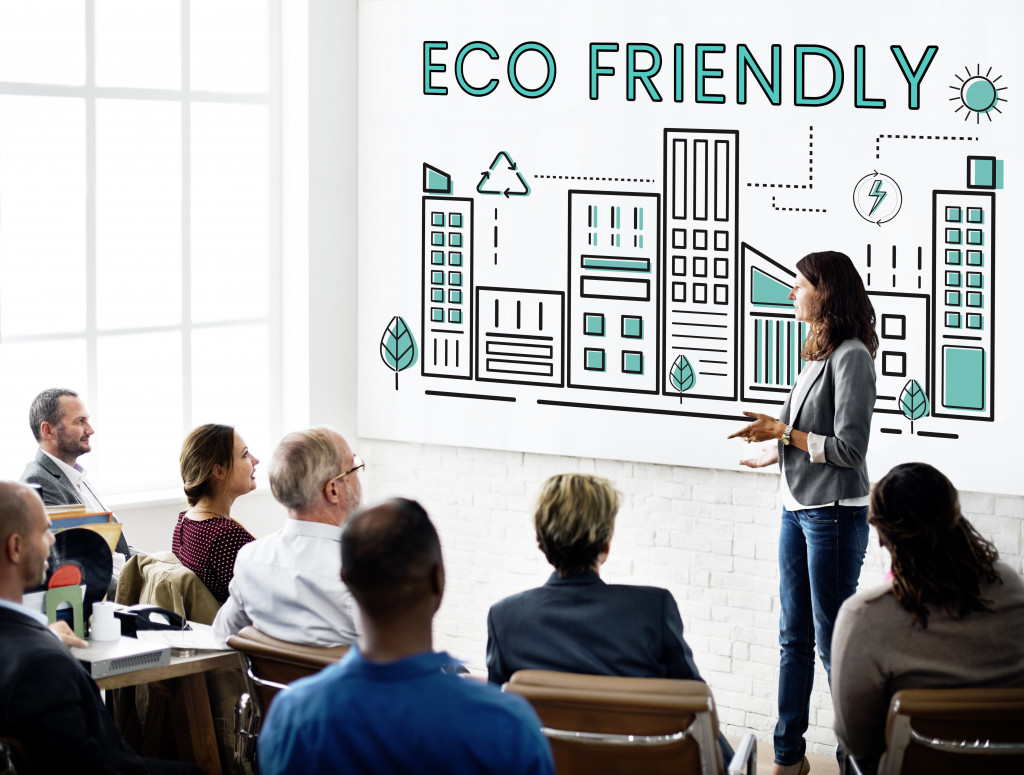Now more than ever, there is a glaring need to maximize efforts to save the environment. It can start from individual choices like rejecting single-use plastics and shifting to eco-friendly alternatives. However, there is also a need to call out big corporations and clamor for government policies to make significant changes.
The Greenhouse Problem and the Plastic Pandemic
Greenhouse gases are the reason the Earth’s temperature continues to rise. Sea levels are also rising as a result of global warming. It’s likely to continue this way if the world population will not actively solve the problem.
According to studies, 100 companies have contributed to about 71 percent of greenhouse gas emissions since 1988. These big numbers don’t make sense at one glance, but these numbers are pretty astounding if you do the math.
You get a ridiculous amount of plastic in one supermarket run. Most of them are plastic wraps you can not repurpose nor use again. If you look closely, some packaging for products doesn’t make sense, especially vegetables and fruits. You have indeed seen apples wrapped individually. To prevent loss of water or to keep the produce fresh is one reason why supermarkets do this.
According to research, 8 million tons of plastic are dumped in the ocean every year. Meanwhile, the study points to a tiny number of companies producing about 6 million tons of plastic every year. The exact number is 4. These 4 companies produce consumer goods. Think about how many other consumer goods companies are out there producing plastic waste every year.

Adopt Eco-friendly Practices for Your Retail Business
If you want to support the movement, there are ways to do it without following the path of these big companies that continue to pollute the Earth. In fact, there are various ideas you can explore to lead eco-friendly entrepreneurship. Here are some ideas you can adopt:
1. Innovative Solutions
If you decide to open your own grocery store, you can set yourself apart from these top polluters in some ways. There is a possible solution to the unnecessary plastic packaging of fresh produce mentioned above. There is a company that sells spray made with plant waste which can be used to keep loose fruits fresh. One spray is all it takes to spare the Earth another piece of pointless packaging. You can also invest in water-resistant cardboards for wet produce. They are easier to recycle and reuse, unlike plastic.
2. Go Old-school
Lessons from the past can certainly solve some of the most pressing problems of this generation. Back when plastic was non-existent, how do you think people managed their day-to-day needs? There were paper bags and bottles to the rescue. You can open up a neighborhood store where all the products require customers to bring their own bottles and bags.
For example, you can offer dishwashing soap, shampoo, and detergent in bulk. All they do is fill their bottles then pay according to the volume they got. The same can be done for other items like noodles, flour, dry beans. If customers don’t have their own bottles, you can sell them some. They can return the bottles in exchange for the money they initially paid. You can also encourage people in your neighborhood to donate dirty bottles which you can clean to use for your store. Alternatively, you can also buy it from them.
3. Reward Eco-friendly Initiatives
Did you know that the fashion brand H&M takes used clothing from its customers and rewards them with discount vouchers? MAC also does this. They have a recycling program where customers can mail them or drop six empty plastic packaging like empty bottles and compacts at their store. MAC rewards its customers with free cosmetics for participating in the program. Incorporate something like this in your retail business.
You can give your customers small discount vouchers for every purchase they make when using their own eco-bags. Or provide them with a stamp card that gets filled up with every empty bottle or recyclable that they return to your store. Partner up with a non-profit organization that has recycling initiatives to make this arrangement work. You can also be a partner for recycling initiatives of the local community. Host events that will educate the locals about the importance of eco-friendly initiatives.
Environmental awareness and sustainability are also significant marketing initiatives right now. Millennials and Generation Z are vocal about their support for environmental causes. They actively look for brands they can support. This is one way you can market to them. Basically, you get two benefits out of this—expanding your market share and fulfilling your responsibility as an Earth dweller.
What you do with your company might seem like a tiny drop in the ocean. But when everyone follows these initiatives, the Earth continues rotating and orbiting for as long as it can.


